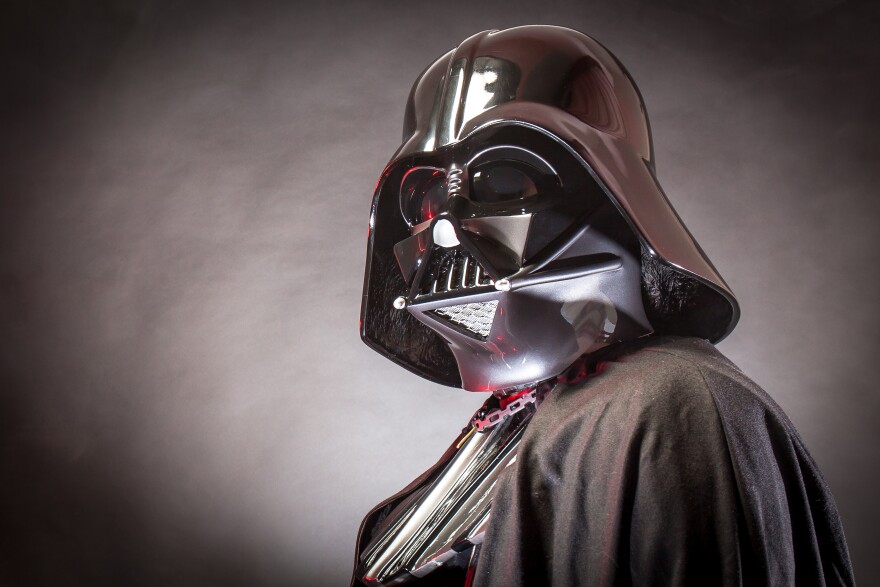"Hokey religions and ancient weapons are no match for a good blaster at your side," according to the Star Wars character Han Solo. But philosophy and the need to understand our personal journeys in the world has been a human need for centuries — from the Odyssey to Beowulf.
While the Star Wars films take place “a long time ago in a galaxy far, far away,” the great epic has deep philosophical themes that we find in literature, mythology, history and religions around the world. There’s good versus evil, finding balance, enlightenment and much more that is presented to us through the Force, the Skywalkers, and many other elements that has filled nine movies worth of heroics.
Turns out, it’s also something that has enough material to teach a college course on. Mark Peterson is a philosophy professor at UW-Milwaukee’s College of General Studies, where he co-teaches a course on superheroes and mythology.
"The actual structure of the course is an application of semiotic theory to unpacking whether or not metaphorical, mythical and religious discourse makes sense,” Peterson explains. “[And] semiotics is kind of [a] philosophical tool box that lets you figure out when metaphors are actually working properly.”
Peterson says that one of Star Wars’ biggest influences on character and story development is the hero’s journey, laid out and popularized by Joseph Campbell in his 1949 book, The Hero with a Thousand Faces.
"What we do know is that [George] Lucas read this book and mirrored those first three films at least on the hero’s journey directly out of Campbell’s analysis of that journey," he notes. "And so we find it explicit in Luke [Skywalker].”
The hero’s journey is divided into three parts: separations, initiations, and returns, according to Peterson. Many films, just like Star Wars, have a similar map of the hero’s journey laid within our cultural mythology. “In the case of Luke’s trajectory, these are psychological obstacles we all come to as we travel towards our own authentic lives,” he says.
But why has Star Wars had such a massive cultural impact on us? Peterson says it all comes down to relatability: "It’s all kind of obvious when you say it out loud, but the reason is because we can find pieces of us in characters. Some of us want to be Han Solo, some of us want to be Princess Leia, some of us want to be Luke and so on.”
Although the Star Wars universe has the light and dark sides of the Force, the Jedi and the Sith, Republic and the Empire — sometimes it's not always black and white. But our quest for good, no matter what perspective we seek it in, is an inherent struggle.
“What it means to be good is to fulfill yourself as a human being and to live a completely authentic life,” says Peterson.
While Buddhist practices and traditions can be the easiest access port to the ways of the Force and the Jedi in Star Wars, Peterson says that Chinese Daoism is the best real-world example of where the fictional mythology stems from.
"Daoism has ying-yang, dark and light intertwined and the balance you need to maintain," he explains. "It’s that balance, that making your position correct in Daoism that establishes you as a good person.”
Peterson joined Lake Effect's Audrey Nowakowski to geek out about philosophical and mythological influences found in Star Wars, and begins by explaining the how fictional superheroes can measure up to deep philosophical questions:






